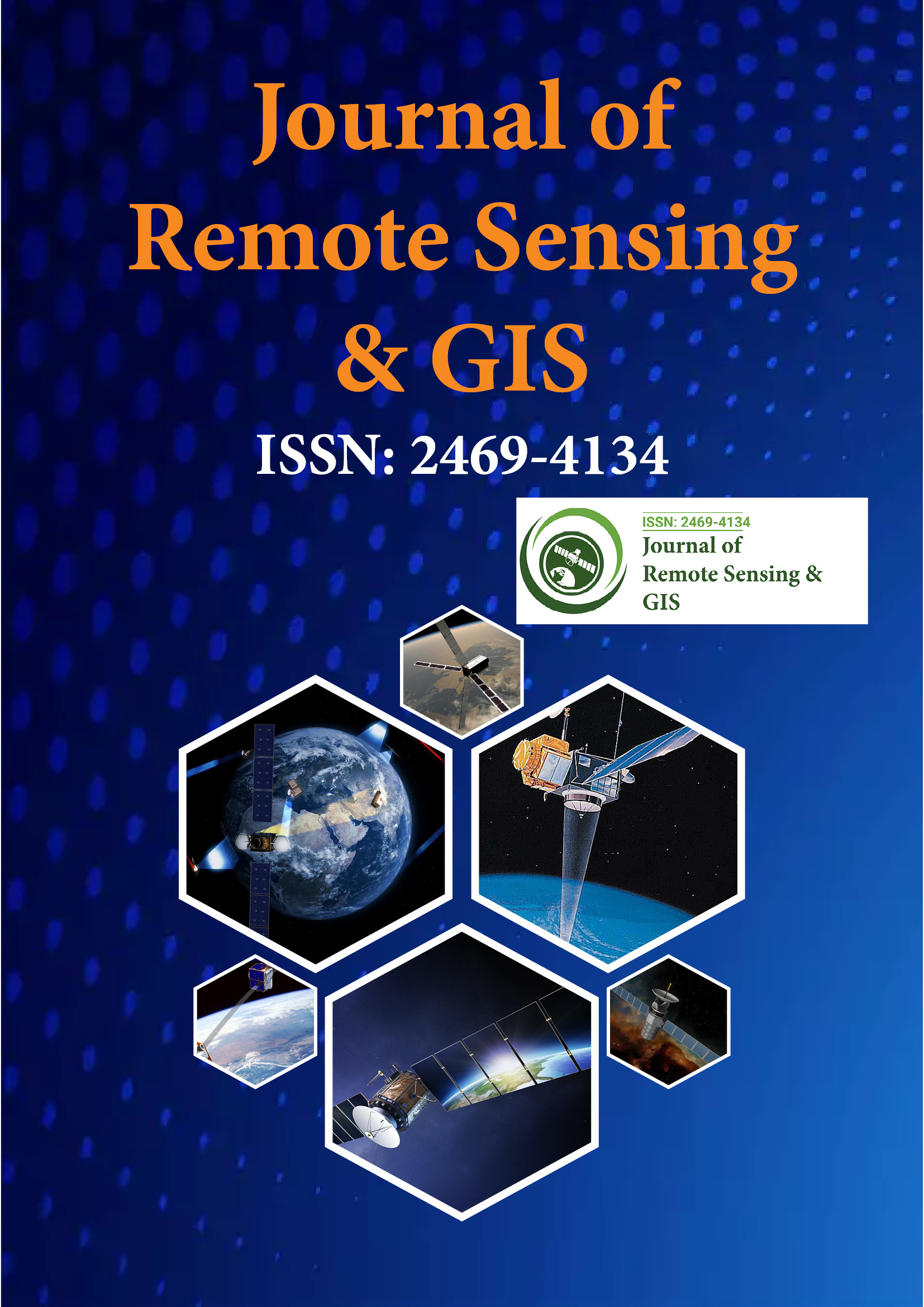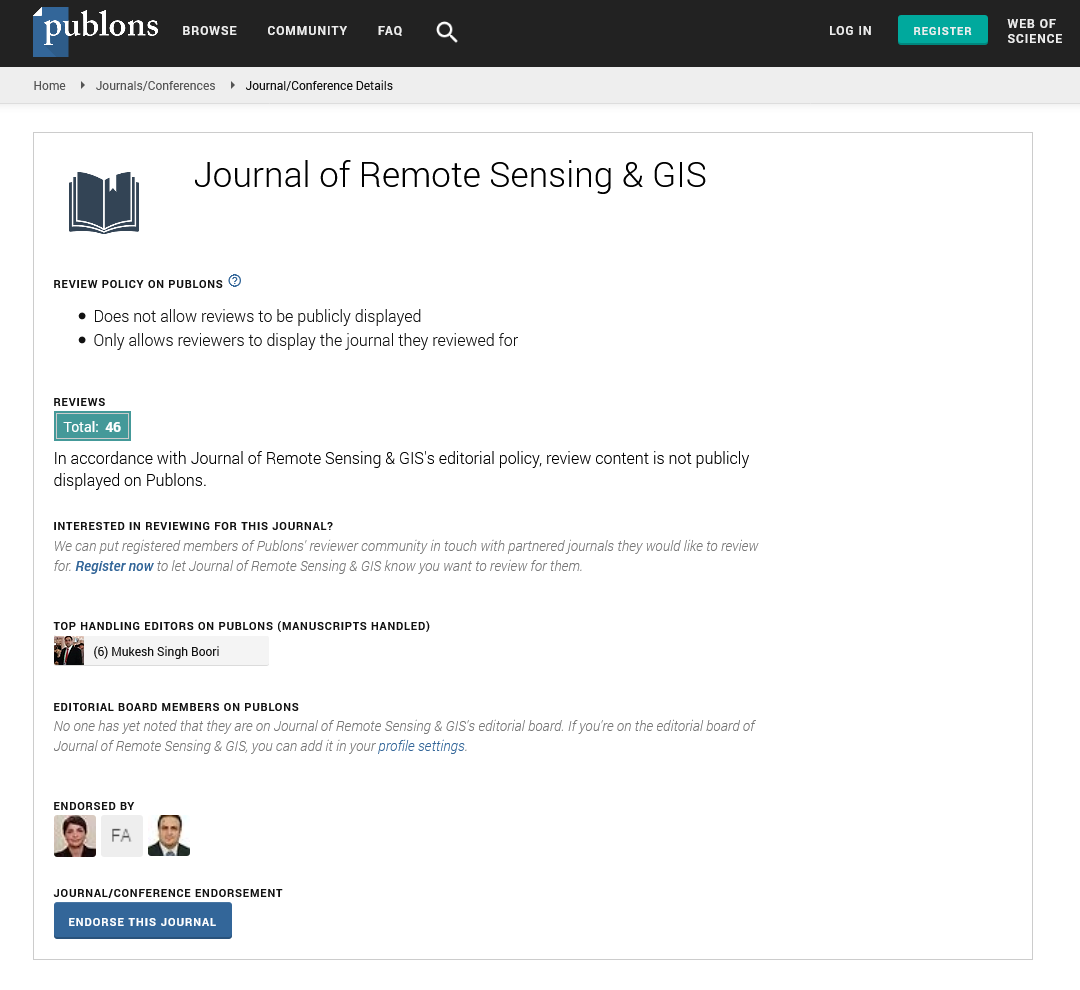Indexed In
- Open J Gate
- RefSeek
- Hamdard University
- EBSCO A-Z
- OCLC- WorldCat
- Publons
- International Scientific Indexing
- Euro Pub
- Google Scholar
Useful Links
Share This Page
Journal Flyer

Open Access Journals
- Agri and Aquaculture
- Biochemistry
- Bioinformatics & Systems Biology
- Business & Management
- Chemistry
- Clinical Sciences
- Engineering
- Food & Nutrition
- General Science
- Genetics & Molecular Biology
- Immunology & Microbiology
- Medical Sciences
- Neuroscience & Psychology
- Nursing & Health Care
- Pharmaceutical Sciences
A service- enabled visualization for conveying spatial information by summarizing temporal point data
4th International Conference on GIS and Remote Sensing
September 27-28, 2018 | Berlin, Germany
Leanne Sulewski
United States Department of Defense, USA
Scientific Tracks Abstracts: J Remote Sensing & GIS
Abstract:
The rapid generation of temporally enabled spatial point information is a key feature of nearly every discipline from epidemiology to criminology. These points can often become cumbersome to display in unison, providing the user little information aside from overall distribution and perhaps qualitative clustering. Even in a web-based environment, this type of display can be distracting for the user. In static graphic, these issues are easily ameliorated by combining the characterization of these points into attributed groupings such as pie charts and bar charts. In a regularly updated database, how can we dynamically provide customers with a qualitative and quantitative sense of magnitude and space? Using a case study derived from Armed Conflict location & Event Data (ACLED), this presentation features a novel approach to convey basic patterns in regularly updated temporal point data using scheduled Python scripts in a server environment. The presentation will review an application that automatically updates service-enabled web maps, depicting violent acts event instances in Africa in 2018. By automating task and summarizing information, this approach ensures the users are receiving the most up-to-date information, without relying on analysts to update the service. Additionally, this approach provides value-added, qualitative and quantitative summarized information without requiring the customer to manipulate the raw data manually.
Biography :
Leanne Sulewski is a Spatial Analyst at the U.S. Department of Defense. She obtained her PhD in Geography from the University of South Carolina in 2013, specializing in GIS and Remote Sensing. Her publications include a variety of cartographic contributions to historical and scholarly works, including Schultz's The Papers of Eliza Lucas Pinckney and Harriott Pinckney Horry. Her scholarly research on population and land use dynamics in Southeast Asia has been published in the American Congress of Surveying and Mapping bulletin. Along with articles, she has collaboratively written a chapter on human migration in a proposed book due to be published in 2019. Her research interests include population and land use dynamics in Southeast Asia, and developing cartographic visualization and spatial analytic techniques.
E-mail: leanne.sulewski.civ@mail.mil

